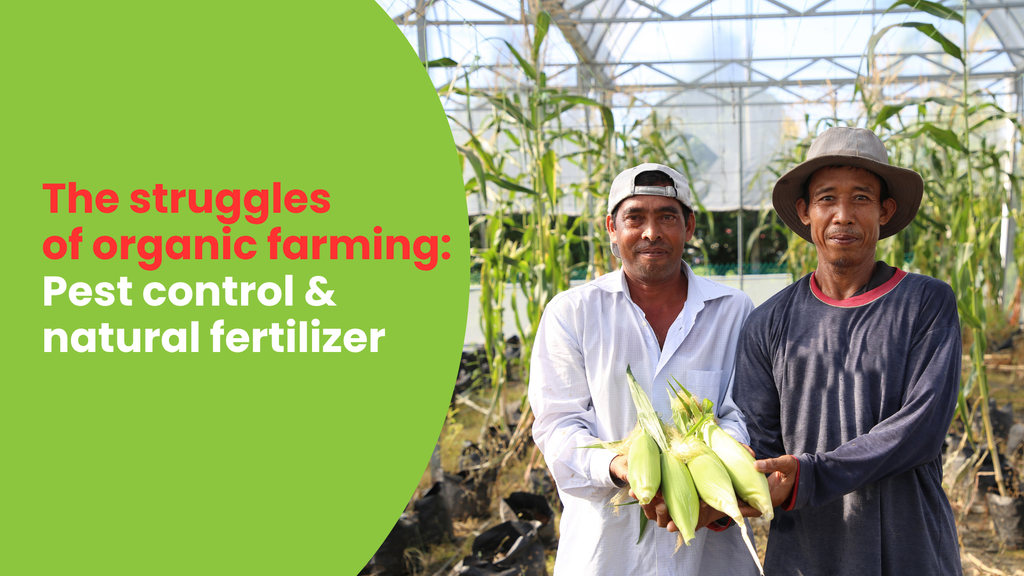The struggles of organic farming

The Challenges and Rewards of Organic Farming in Malaysia
Running an organic farm is far from easy, especially when it comes to managing pests and fertilizing without chemicals. Organic farmers are not allowed to use synthetic pesticides or fertilizers, so they depend on natural methods. In Malaysia’s tropical climate, pests and plant diseases are a constant challenge due to humidity and rain.
Without chemical pesticides, organic farmers rely on methods like crop rotation, maintaining a clean farm by removing crop residue, using yellow sticky traps, or even hand picking pest one by one as chemical-free pest control.

These natural methods are safer but often slower and less effective. A sudden outbreak of pests can destroy an entire crop in just a few days, even after weeks of careful care. That’s why farmers must monitor their plants daily checking leaves, soil, and signs of disease by hand.
On the fertilizer side, organic farmers make their own compost using kitchen waste like coffee grounds, eggshells, vegetable peels, and food scraps. This process takes time, knowledge, and patience, and results are not immediate. If done incorrectly, it can lead to poor yields or stunted plant growth. On top of that, organic farming often requires more manpower and higher costs compared to conventional methods.

Despite all these challenges, organic farmers remain committed. They believe in growing vegetables and fruits without harming the earth or exposing families to harmful chemicals. So when you shop organic, you’re not just buying vegetables you’re supporting a better, cleaner, and more sustainable food system. Every bunch of long beans, pak choy, or kailan from our farm carries a story of patience and care.
